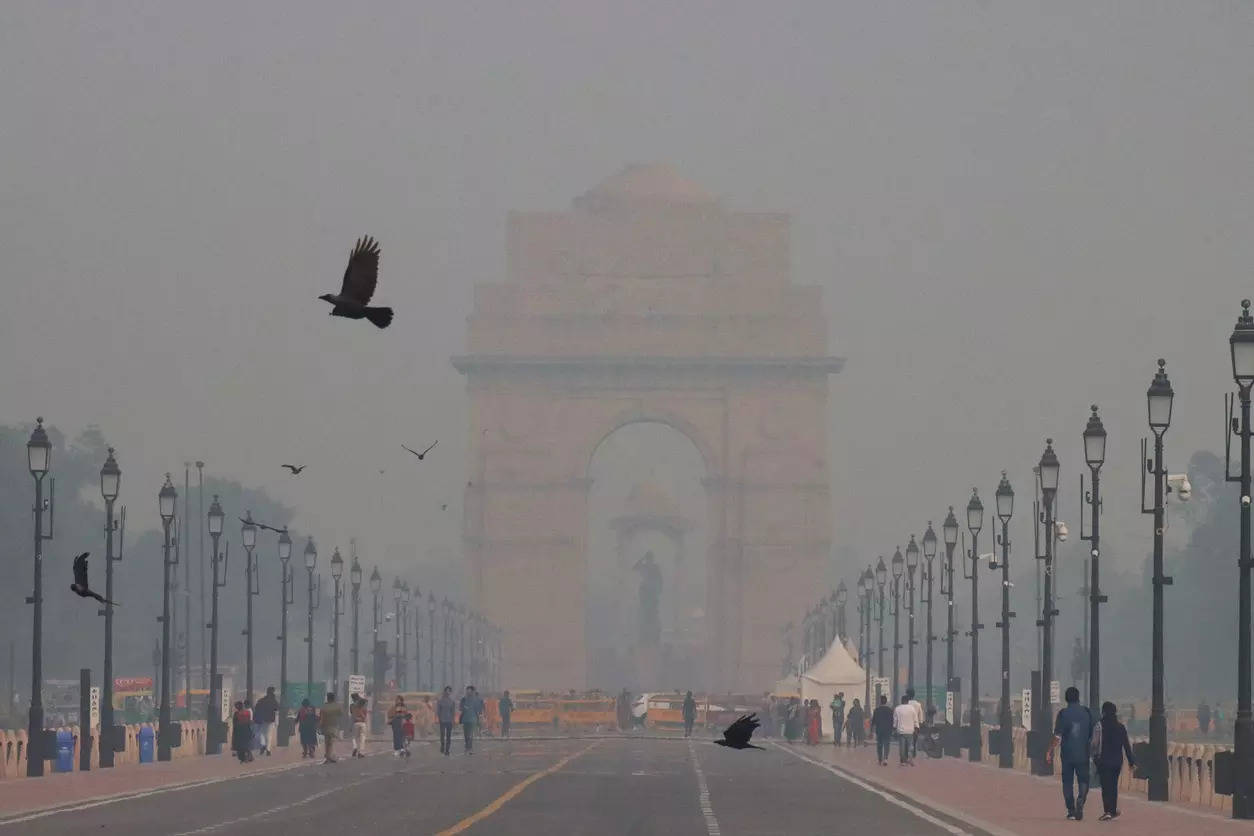
NEW DELHI: The Centre‘s panel on Delhi-NCR’s air quality on Sunday revoked stage 3 curbs under the Graded Response Action Plan after witnessing a dip in air pollution levels owing to favourable meteorological conditions, especially improved wind speed, according to an official order. The city’s 24-hour average air quality index (AQI) stood at 339 at 4 pm on Sunday.
According to forecasts from the India Meteorological Department and the Indian Institute of Tropical Meteorology, the air quality is predicted to improve further — from “severe” to “poor” — due to favourable meteorological conditions.
The IMD has predicted rain in northwest India over the next two-three days due to back-to-back western disturbances.
The Commission for Air Quality Management, responsible for strategising air pollution mitigation in Delhi-NCR, directed authorities in the region to immediately revoke curbs prescribed under stage 3 to prevent further worsening of the situation.
GRAP Stage 3, which was brought back on Friday, entails a ban on non-essential construction work.
Classes up to grade 5 are required to shift to hybrid mode under Stage 3. Parents and students have the option to choose online education wherever available.
Under Stage 3, the use of BS-III petrol and BS-IV diesel cars (four-wheelers) is restricted in Delhi and nearby NCR districts. Persons with disabilities are exempted. Stage 3 also bans non-essential diesel-operated medium goods vehicles with BS-IV or older standards in Delhi.
During winters, the Delhi-NCR region enforces restrictions under GRAP, which categorises air quality into four stages – Stage I (Poor, AQI 201-300), Stage II (Very Poor, AQI 301-400), Stage III (Severe, AQI 401-450), and Stage IV (Severe Plus, AQI above 450).
Unfavourable meteorological conditions, combined with vehicle emissions, paddy-straw burning, firecrackers, and other local pollution sources, lead to hazardous air quality levels in Delhi-NCR during winters.
Doctors say that breathing Delhi’s polluted air is equivalent to smoking approximately 10 cigarettes a day.
Prolonged exposure to high pollution levels can exacerbate respiratory issues such as asthma, bronchitis, and chronic obstructive pulmonary disease (COPD) and significantly increase the risk of cardiovascular diseases.